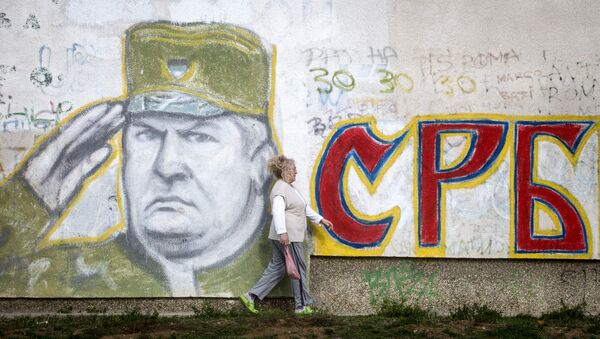"Some were happy with the verdict and others were saddened. But Ratko Mladic will continue to be a hero for the Serbian people because Serbs know that he was against war crimes and never called for them to be committed," Momcilo Krajisnik, former chair of the parliament of Republika Srpska, said in an interview with Sputnik Serbia, adding that Mladic’s lawyers may succeed in appealing the verdict.
Krajisnik suggested the verdict is unlikely to be positive for the situation in region, saying, it "will further aggravate tensions between Serbs, Bosniaks and Croatians and will not contribute to reconciliation."
Biljana Plavsic, former president of Republika Srpska, said that she "was not surprised" by the verdict, but echoed Krajisnik, saying that the verdict can still be appealed.
"Taking into account the previous decision by the ICTY, I’m not surprised. But this is only a first-degree verdict. The tribunal has seen cases in which people sentenced to 20 years were released after an appeal. We will wait for the ruling of the appeals court," she said.
READ MORE: Mladic's Sentencing and ICTY's Double Standards in Conviction
Mladic’s son, Darko Mladic argued that the tribunal could not deliver any other verdict and warned that the verdict could be used for "political interests."
"This ruling is not legally binding so far and can be appealed, but I think it is apparently politically biased," Darko Mladic told Sputnik Serbia in a separate interview.
He added that the decisions taken by the ICTY, including Mladic’s verdict, will not contribute to the reconciliation of groups in the region.
"According to the resolution on which the tribunal was based, the goal was to reconcile the sides of the conflict. Now, the ICTY insists their goal is to punish war criminals, but this discriminates against victims. Those who killed Serbs are not in prison and their leaders have never appeared before the court," he said.
He added, "Those forces that are behind such verdicts want the Balkans to remain an explosive region because they don’t have enough control over the region. The Balkans are important both as a region in itself and as the possible knife to the throat of Europe."


